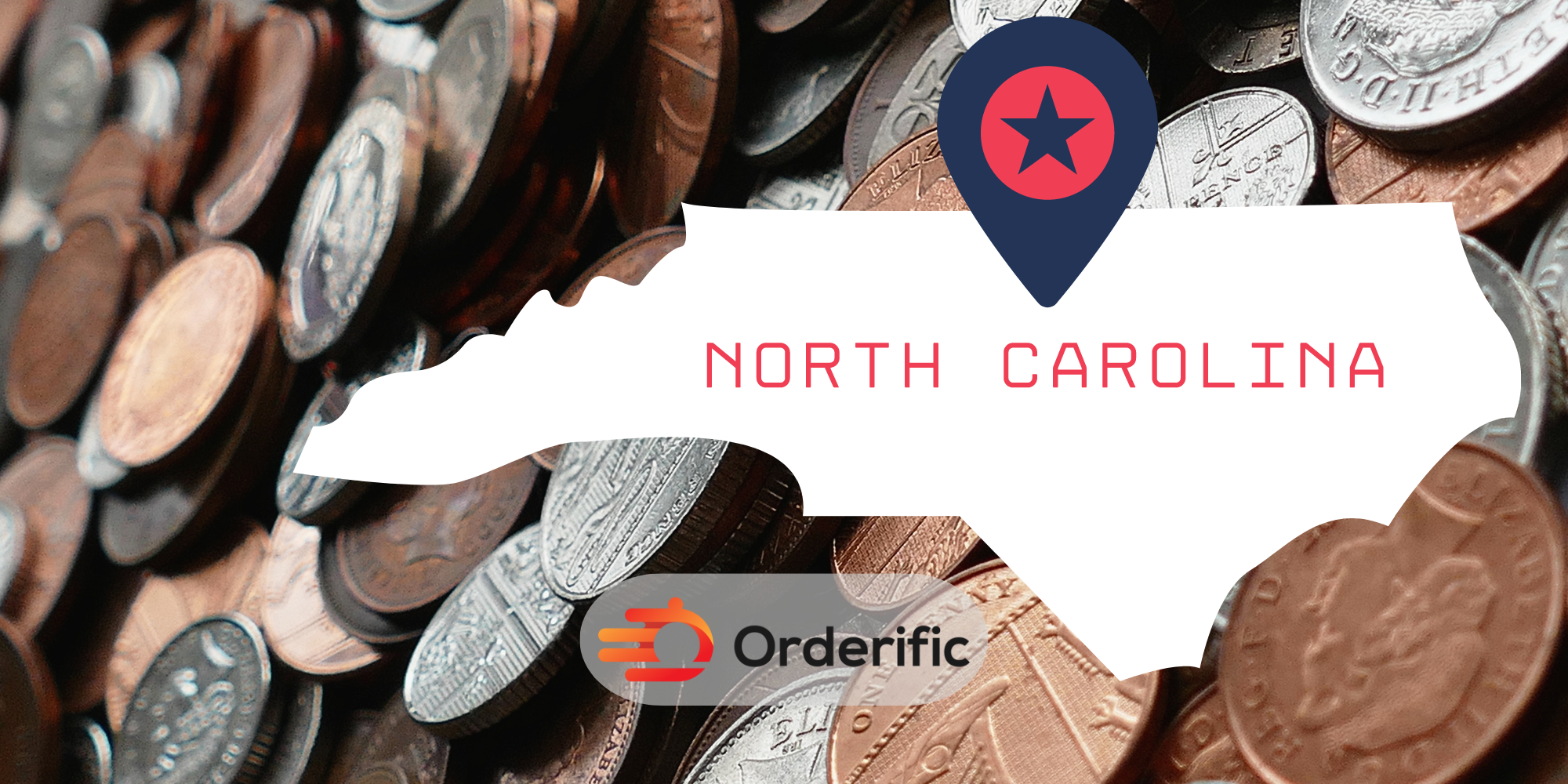Welcome to our guide on the facts and figures of North Carolina’s minimum wage. Employers should be aware of their obligations under the Fair Labor Standards Act (FLSA), but employees must know their rights too. In this article, we discuss how much workers earn in NC, where federal and state laws differ, and how minimum wage affects local economies. Read on to learn the truth about minimum wage in the Tar Heel State!
Under federal law, employers must pay all workers at least $7.25 per hour, as established by the Fair Labor Standards Act (FLSA). The state of North Carolina has its minimum wage laws too; however, they do not exceed the federal minimum wage.
As of 2021, the minimum wage in North Carolina is $7.25 per hour for most employees; however, workers who receive tips have a lower minimum wage and those under the age of 20 are entitled to an even lower rate. In addition, tipped employees must earn at least 30 percent of the minimum wage before gratuities.
Impact of Minimum Wage on the NC Economy
A minimum wage is an important factor in economic growth and stability. A higher minimum wage can help to reduce poverty, as more people can earn a livable income. It also benefits businesses by increasing consumer spending power; when workers have more disposable income, they will spend more money in the local economy. This, in turn, stimulates local job growth and economic development.
Furthermore, the increases in the minimum wage can also lead to higher employee morale and productivity. Studies have found that workers who are paid a fair wage feel more satisfied in their jobs and perform better than those who are underpaid.

The Current Minimum Wage in NC 2023
The North Carolina Department of Labor sets the minimum wage for most employees in the state at $7.25 per hour. This is the same as the federal minimum wage, which has been in effect since 2009.
Employers must also pay tipped employees a lower hourly rate based on their tips. The current tip credit for North Carolina employers is $4.25 per hour. This means that employers must pay their tipped employees at least $3.00 an hour plus any tips they receive from customers, to meet the minimum wage amount required by law.
In addition, employers may pay underage workers a lower minimum wage. Employees under the age of 20 are legally allowed to be paid a rate of $4.25 an hour for the first 90 days of employment. After 90 days, employers must pay these employees at least the regular minimum wage rate of $7.25.
1. How NC’s Minimum Wage Compares to Other States
North Carolina’s minimum wage is lower than many other states, with the federal rate of $7.25 per hour being the same as in Alabama, Louisiana, Mississippi, and South Carolina – four of North Carolina’s neighboring states.
In comparison, many nearby states have higher wages. Virginia has a minimum wage of $12.00 per hour, and Maryland has a minimum wage of $13.25 per hour. Even further away, Washington State has the highest minimum wage in the country at $15.74 an hour – nearly double that of North Carolina’s minimum wage.
2. The History of Minimum Wage in North Carolina
The minimum wage in North Carolina has not changed since its introduction in 2009. This means that for nearly 12 years, employees have been earning the same hourly rate – $7.25 per hour.
North Carolina’s lack of change in the minimum wage makes it an outlier among other states. In 2021 alone, 18 states enacted legislation to increase the minimum wage, and several more states are expected to do so by 2022.
3. The Pros and Cons of Raising the Minimum Wage in NC
Raising the minimum wage is a contentious issue, and economists have different opinions on its impacts. Supporters of raising the minimum wage argue that it will help boost economic activity, reduce poverty, and increases consumer spending as workers can buy more goods and services with their additional income.
However, opponents of an increased minimum wage argue that it would lead to job losses, higher prices, and decreased profits for businesses. They argue that employers would be forced to cut hours or reduce workers to keep costs low.

The Impact of Minimum Wage on Workers and Employers
The impact of minimum wage on workers and employers is an important issue to consider. Many low-wage workers rely on the minimum wage to make ends meet, but employers also need to make sure they can stay in business.
By setting a higher minimum wage, employers must pay their employees more money, which can lead to higher prices for goods and services. This can hurt businesses, as customers may be less likely to purchase their product or service if the prices are too high.
Employers must also consider the effect of rising wages on labor costs. If the minimum wage is increased without an increase in productivity, employers will have higher labor expenses and may need to increase prices or reduce staff to remain profitable.
On the other hand, a higher minimum wage can have positive benefits for workers and employers alike. Workers will be able to earn more money, potentially reducing poverty levels in the state. Employers may also see the increases in productivity as employees are paid more fairly for their work – which could lead to increased profits in the long run.
The Economic Landscape of NC and Minimum Wage
North Carolina’s economy is heavily reliant on tourism and agriculture, which are both low-wage industries. The state has a relatively high poverty rate – 15.3 percent of North Carolinians lived in poverty in 2019 – and the median household income was lower than the national average at $50,584.
Raising the minimum wage could help reduce poverty levels in the state, as workers would have more money to spend on essential goods and services. In addition, it could lead to increased economic activity as people can purchase more items with their additional income.
1. The Relationship Between Minimum Wage and Job Growth in North Carolina
There is no definitive answer to the question of whether or not raising the minimum wage leads to job growth in North Carolina. However, some studies have shown that increasing the minimum wage can lead to increased employment and higher wages for workers.
A study published by the National Bureau of Economic Research found that raising the minimum wage in a state increases overall employment – including low-wage workers – and can reduce poverty. Other research has found that raising the minimum wage could lead to job losses in certain industries, such as restaurants, but this is not necessarily negative if it leads to higher wages for other employees.
2. The Connection Between Minimum Wage and Consumer Spending in North Carolina
Raising the minimum wage can have a positive impact on consumer spending in NC. As workers earn more money, they can make larger purchases and purchase more items – which could lead to the increases in sales for local businesses.
Higher wages may also improve employee morale and productivity, leading to increased profits for employers. In addition, raising the minimum wage could reduce poverty levels in the state, which could lead to a healthier economic environment for everyone.
3. The Impact of Minimum Wage on NC’s Overall Economic Growth
Raising the minimum wage has the potential to increase economic growth in North Carolina. Higher wages mean that workers have more money to spend, which could lead to increased consumer spending and a boost in sales for businesses.
This increased economic activity could also create new jobs as demand increases. In addition, higher wages could reduce poverty levels in the state – leading to a healthier economic landscape for everyone.

Conclusion
Minimum wage is an important topic that affects many workers in North Carolina – from tipped employees to underage workers. Employers must follow federal and state laws when setting wages, and employees should be aware of their rights under the Fair Labor Standards Act (FLSA).
In this guide, we discussed how much workers earn in NC, where federal and state laws differ, and how minimum wage affects local economies. We also covered the history of the minimum wage in North Carolina, as well as its impact on workers and employers – including job growth and consumer spending. Finally, we explored the potential economic impacts of raising the minimum wage in North Carolina – from increased economic activity to reduced poverty levels. We hope this guide has provided you with a better understanding of the facts and figures surrounding minimum wage in North Carolina.
Regardless of your opinion on this issue, it is important to stay informed about the current minimum wage law – both in North Carolina and across the United States. Knowing your rights as an employee can help ensure that you are being paid fairly for your work.
Let’s find out more with Orderific here! Also don’t forget to take advantage of Orderific’s benefits for your business. Click here to get involved!
FAQs
Is North Carolina’s minimum wage expected to increase in the near future?
At this time, there are no plans to increase the minimum wage in North Carolina.
How does North Carolina’s minimum wage compare to the federal minimum wage?
The minimum wage in North Carolina is the same as the federal minimum wage – $7.25 per hour.
Are there any exemptions to North Carolina’s minimum wage law?
Yes, employers may pay employees under the age of 20 a lower rate – $4.25 an hour for the first 90 days of employment.
Can employers pay tipped workers less than the minimum wage in North Carolina?
Yes, employers may pay tipped workers a lower rate – $3.00 an hour plus any tips they receive from customers.
How many workers in North Carolina earn minimum wage?
Approximately 5 percent of workers in North Carolina earn minimum wage. This amounts to around 270,000 workers.
What impact does raising the minimum wage have on small businesses in North Carolina?
Raising the minimum wage could have both positive and negative impacts on small businesses in North Carolina.













